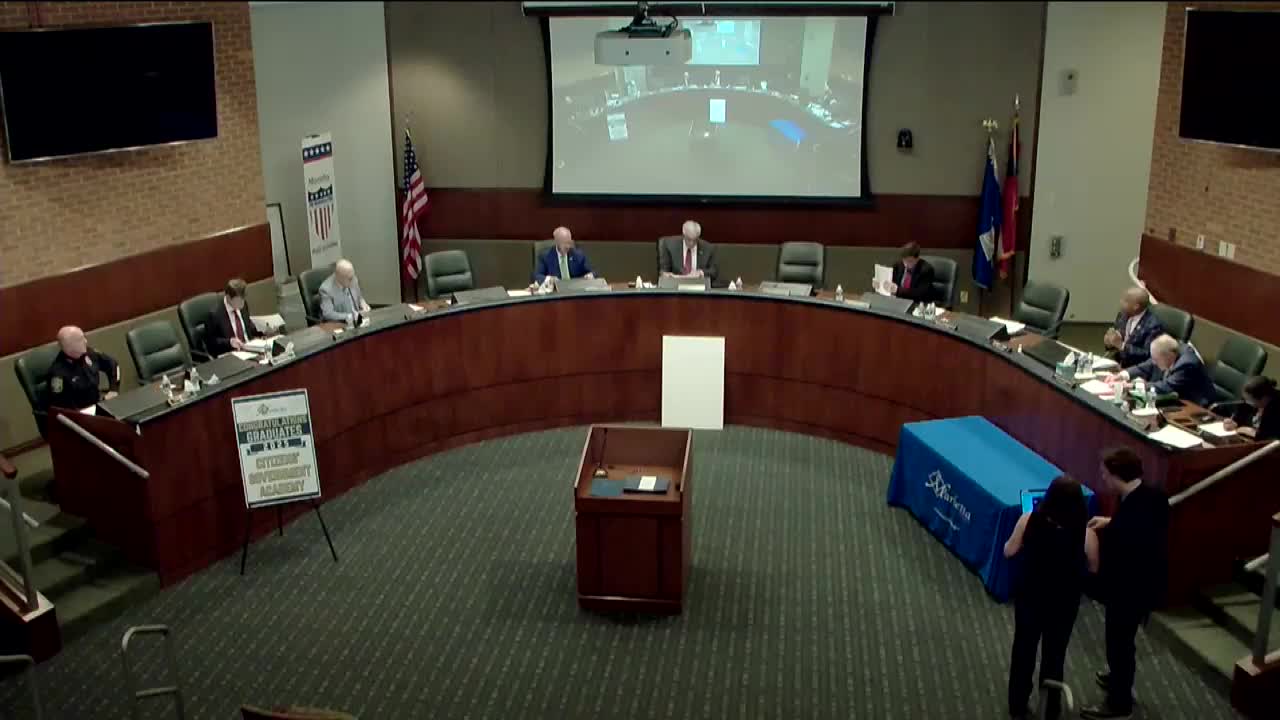Article not found
This article is no longer available. But don't worry—we've gathered other articles that discuss the same topic.
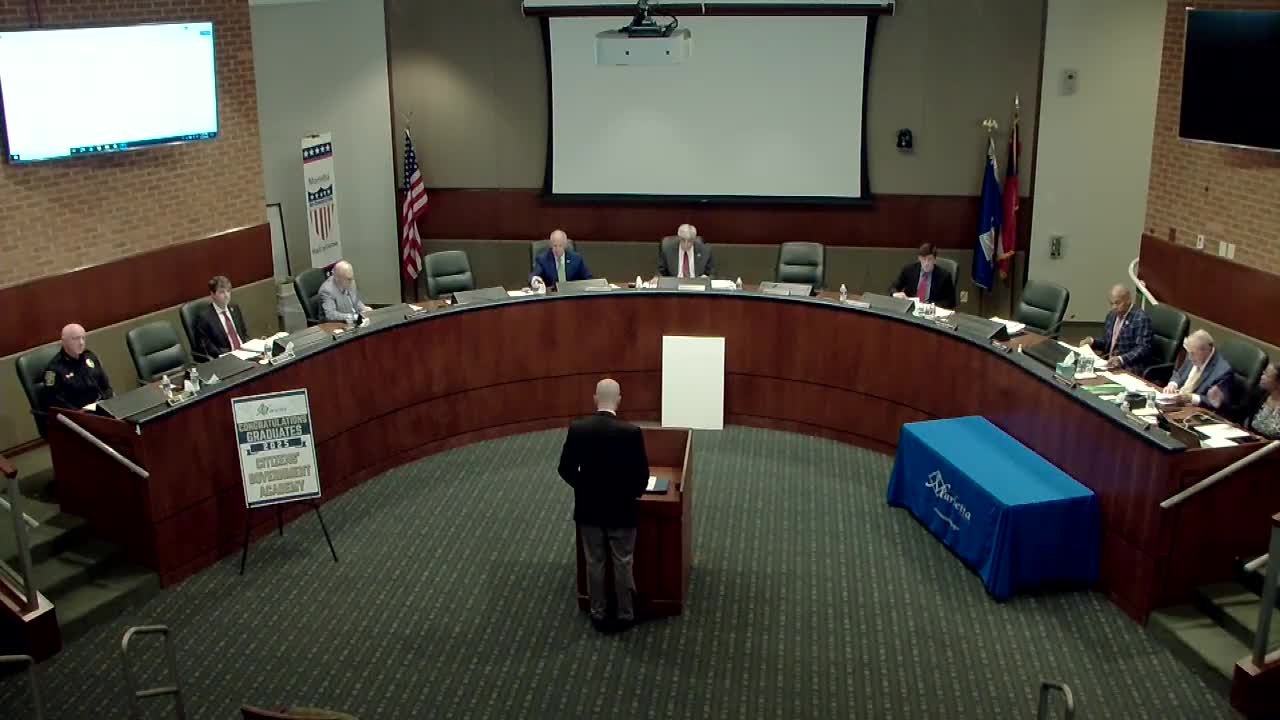
Applicant provides revised elevations and landscape plan for 1016 Whitlock Avenue; council hears details on courts, fencing and utilities
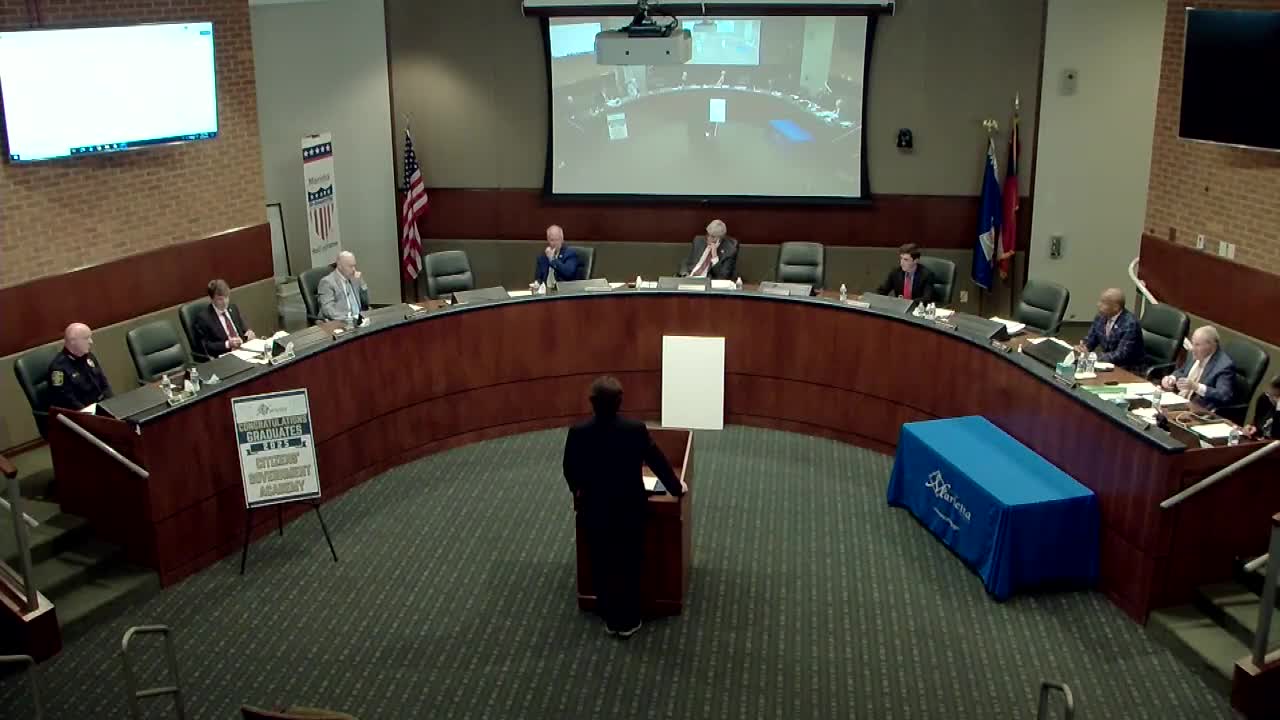
Staff flags DOE report on solar-panel communications and local cybersecurity project with Georgia Tech
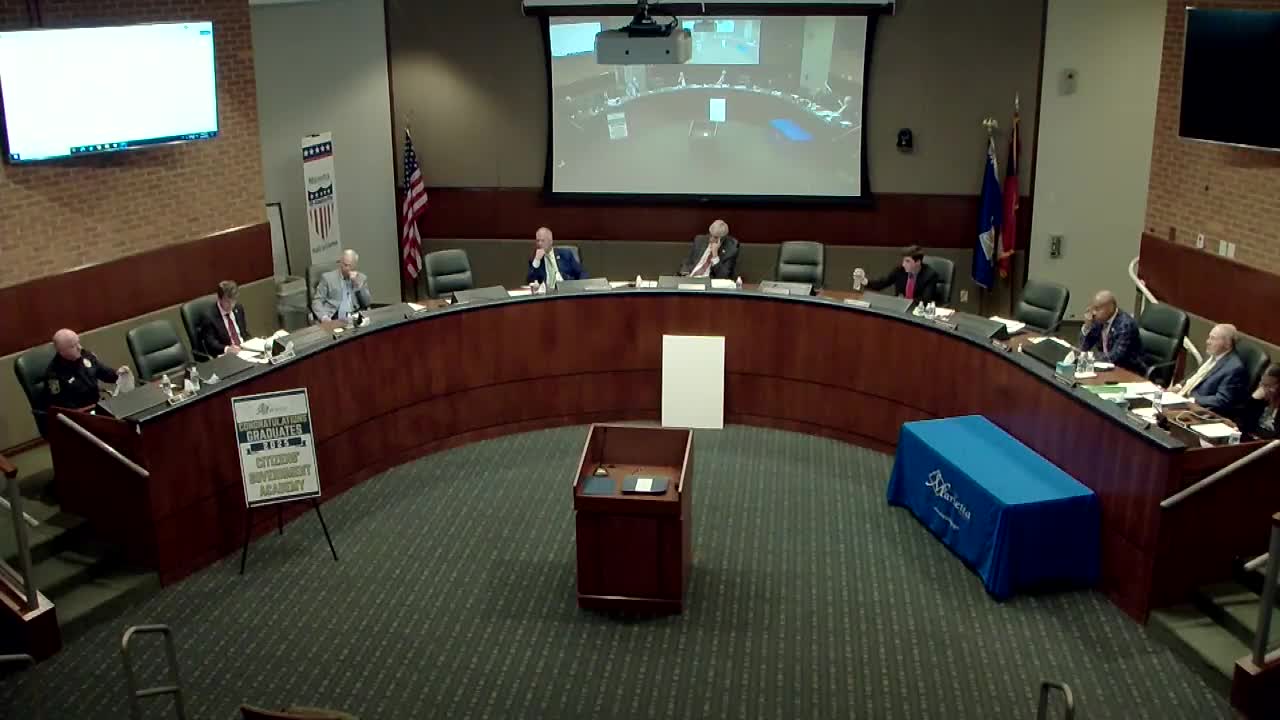
Police chief reports recent advanced training and warns of regional academy closure affecting recruit placements
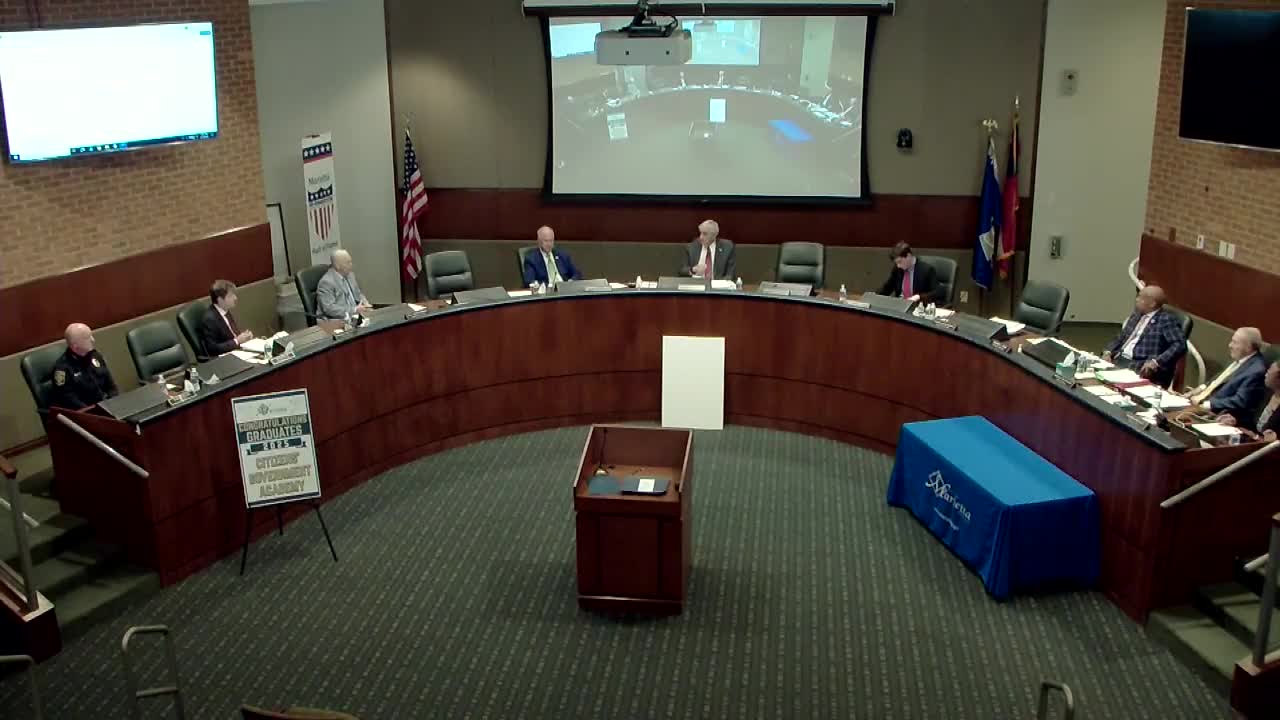
Council moves to executive session for legal/litigation matters; vote recorded 5-0
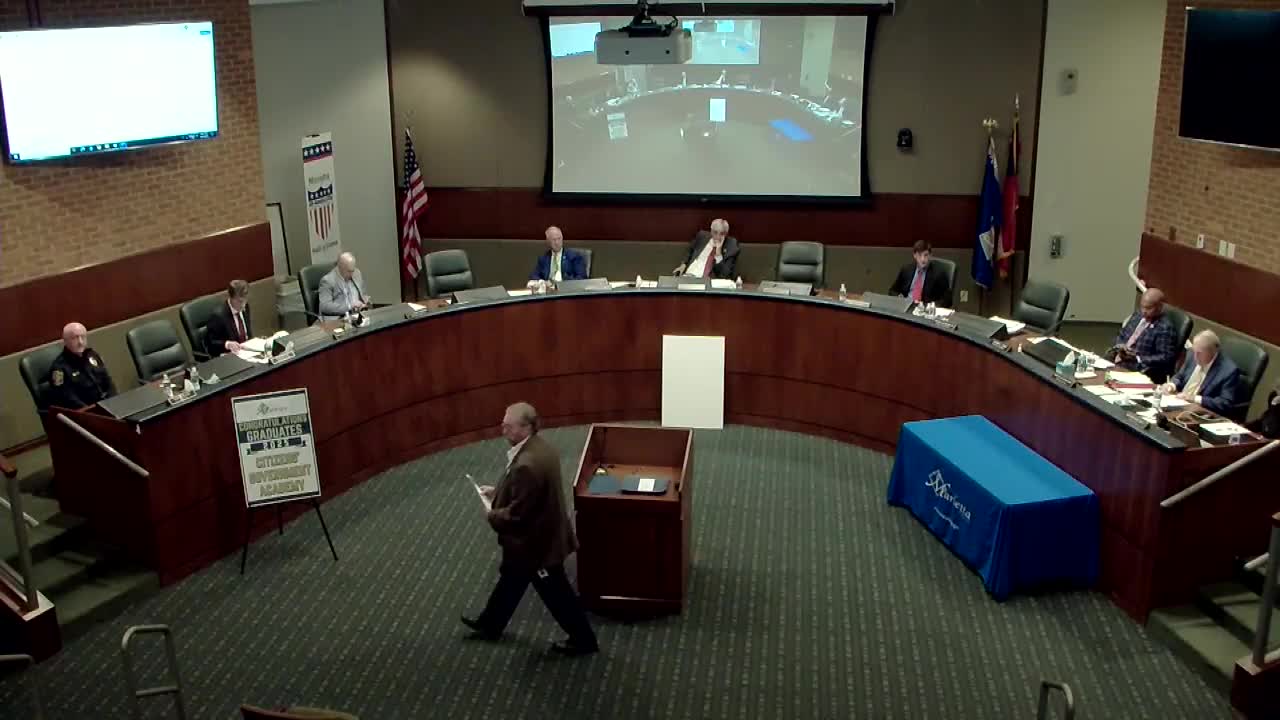
Marietta named top U.S. city for generosity by GoFundMe; city highlights trail video and upcoming events
